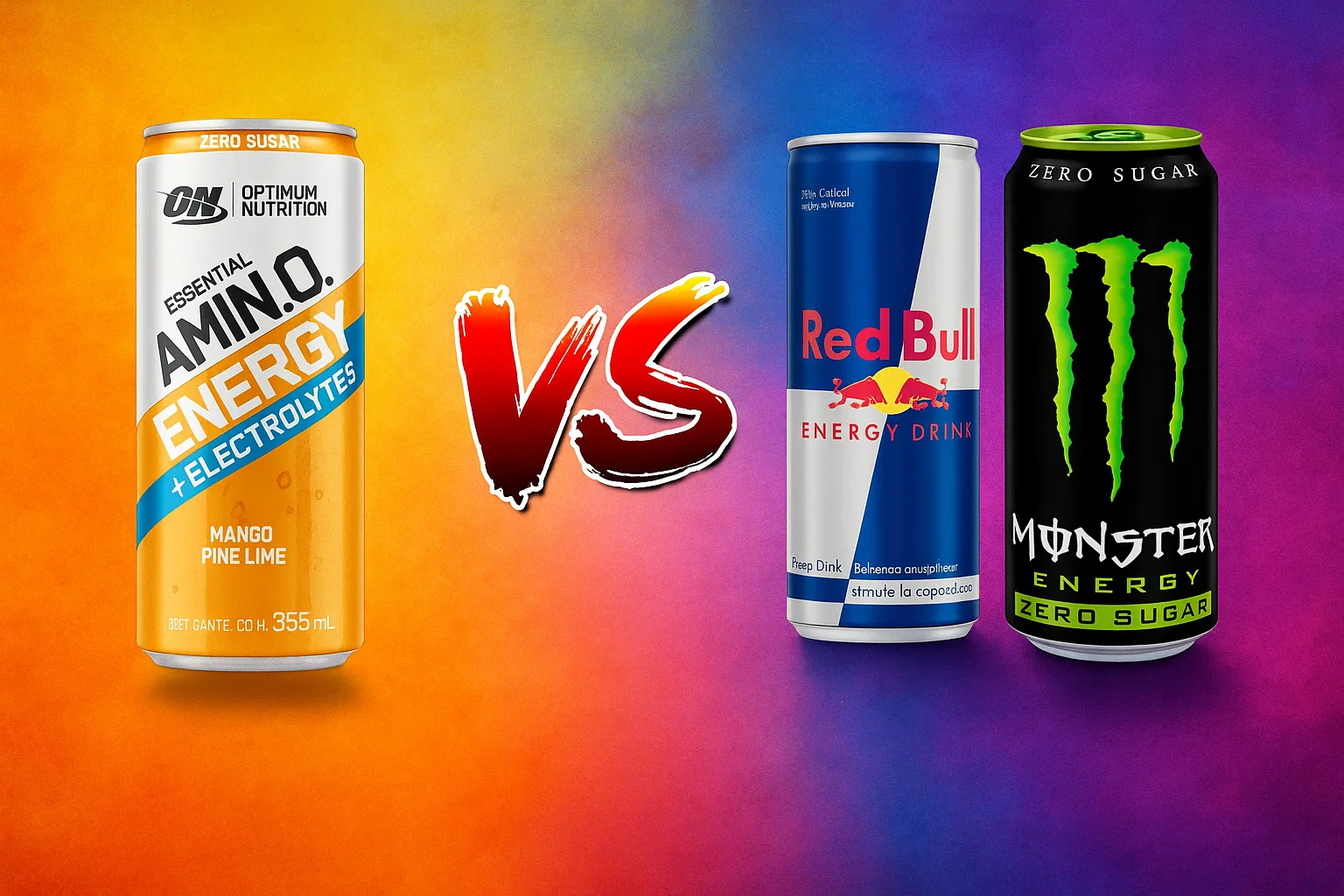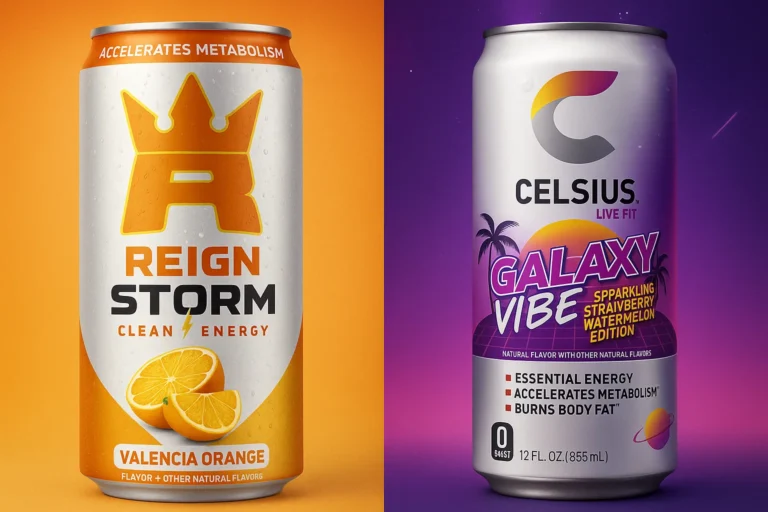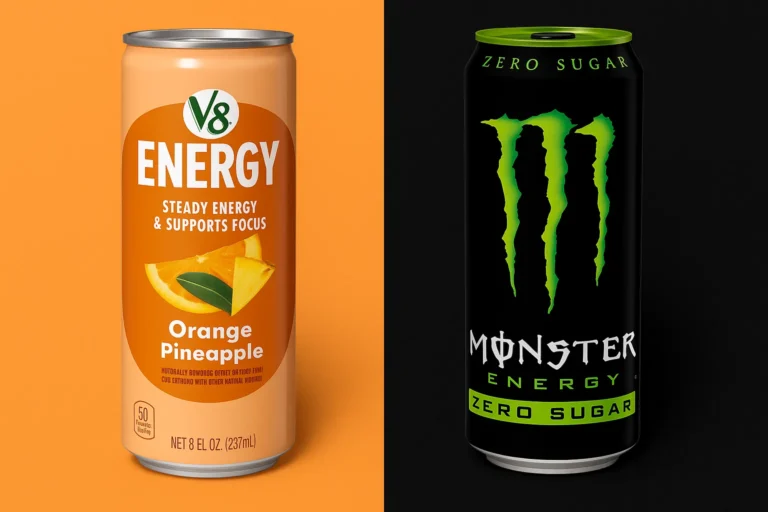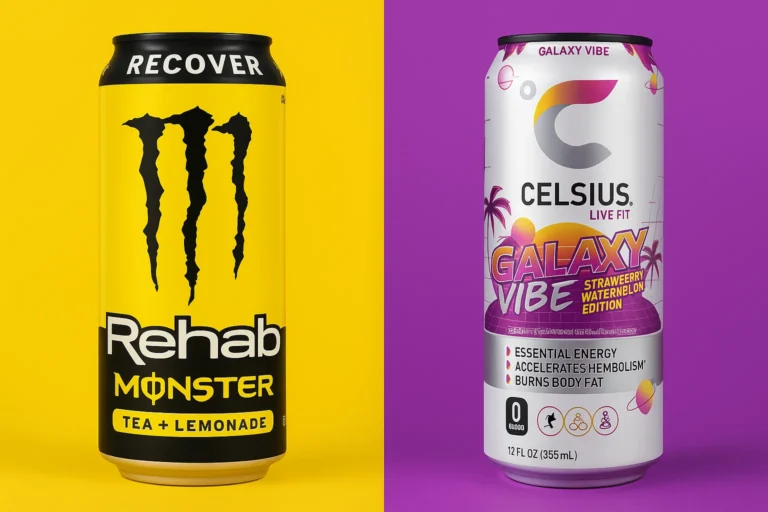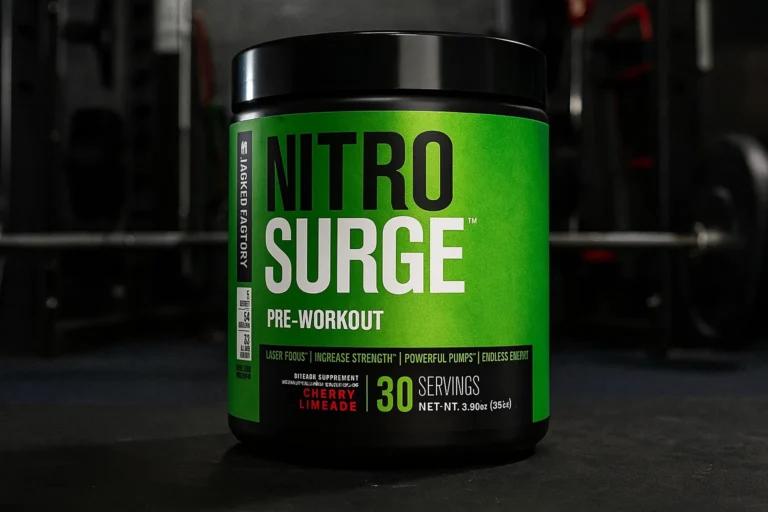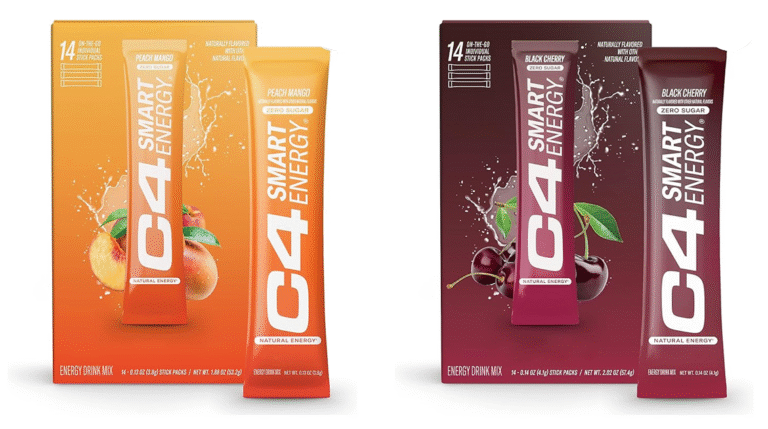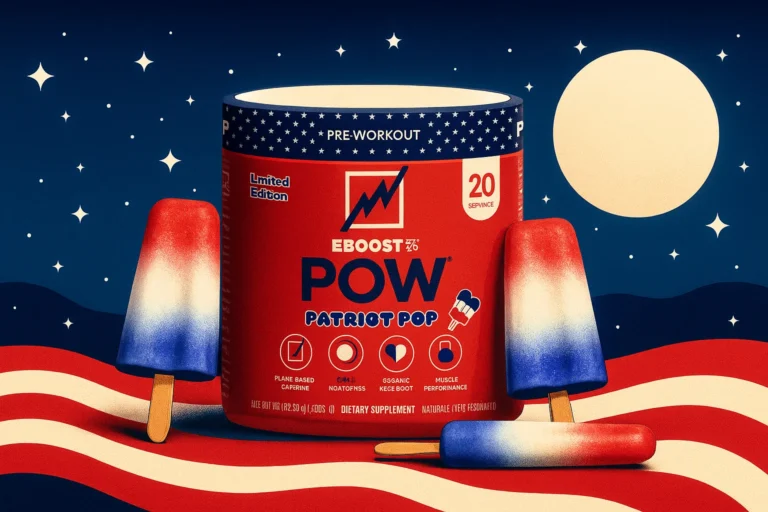Amino Energy vs Energy Drinks: Which One Should You Choose?
When it comes to boosting energy and focus, there are countless options on the market, but not all are created equal. Amino Energy vs Energy Drinks has become a common debate among fitness enthusiasts, students, and busy professionals alike.
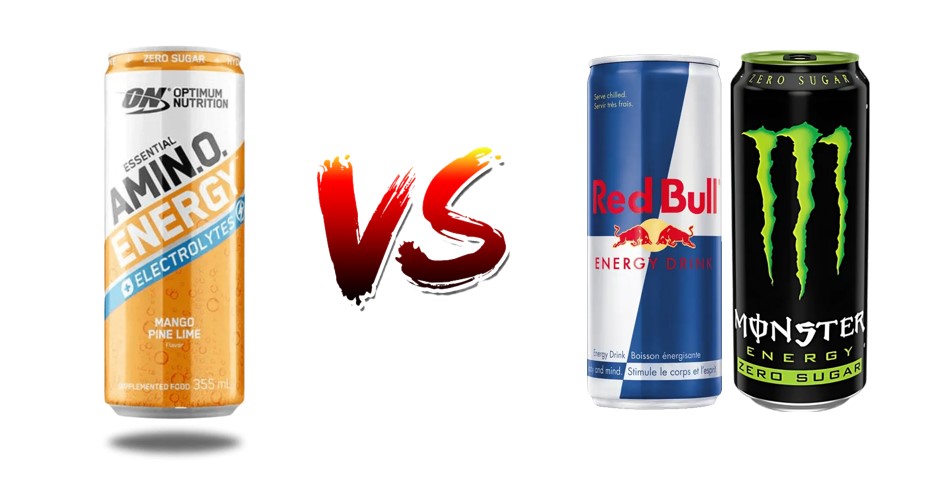
While both offer an energy boost, their ingredients, benefits, and long-term effects are very different. In this guide, we break down the key differences to help you choose the best option for your lifestyle and goals.
Table of Contents
What Is Amino Energy?
Amino Energy is a functional energy beverage that blends essential amino acids, natural caffeine, and hydration-supporting minerals to deliver clean, sustained energy. Unlike most energy drinks loaded with sugar and synthetic caffeine, Amino Energy is designed to enhance focus, performance, and muscle recovery — with minimal calories and no crash.

Amino Energy: Ingredient Breakdown
| Nutrient | Per Serving (355ml) |
|---|---|
| Calories | 5 kcal |
| Protein | 0g |
| Fat | 0g |
| Carbohydrates | 1g |
| Sugars | 0g |
| Sodium | 100mg |
| Caffeine | 100mg |
| Amino Acids | 5g |
Let’s take a closer look at the amino acids and their unique benefits:
- L-Threonine
Supports gut health and immune function. Also plays a role in collagen and muscle tissue production. - L-Leucine
A branched-chain amino acid (BCAA) that triggers muscle protein synthesis — essential for recovery and lean muscle growth. - L-Citrulline
Boosts nitric oxide levels, improving blood flow, endurance, and reducing muscle soreness. - L-Theanine
Found in tea leaves, it promotes calm focus, reduces caffeine-induced jitteriness, and enhances mental clarity. - L-Alanyl-L-Glutamine
A stabilized form of glutamine that supports hydration, gut health, and muscle repair — especially under stress or after training. - Micronised Taurine
Helps regulate electrolyte balance, supports heart health, and improves athletic performance. - L-Lysine Hydrochloride
Supports immune function and collagen formation, also aids in muscle tissue repair.
Caffeine Content: 100mg from Tea Leaf and/or Coffee Bean
This is a moderate dose — about the same as a small coffee — offering a balanced energy boost without overstimulation. Because it’s derived from natural sources (green tea or coffee bean), it’s less likely to cause the crash associated with synthetic caffeine in some energy drinks.
Other Ingredients:
- Carbonated Water – Refreshing base without added sugars.
- Acidity Regulators (Citric Acid, Malic Acid, Sodium Citrate) – Improve taste and shelf life.
- Sweetener (Sucralose) – Zero-calorie, sugar-free sweetness.
- Mineral Salts (Potassium Chloride, Magnesium Phosphate) – Help with electrolyte balance and muscle function.
How Do Traditional Energy Drinks Compare?
Now let’s look at how Amino Energy compares to big brands like Red Bull, Monster, or Bang.
Common Features of Traditional Energy Drinks:
- High Caffeine: Often 150–300mg per can (some double that of Amino Energy).
- High Sugar: Many contain 25–40g of sugar — that’s 6–10 teaspoons!
- Artificial Additives: Including preservatives, food dyes, and synthetic sweeteners.
- Lack of Recovery Support: Most don’t contain amino acids or muscle-supporting ingredients.
Example: Monster Energy (473ml Can)
| Nutrient | Per Can |
|---|---|
| Calories | ~200 kcal |
| Sugar | 54g |
| Caffeine | 160mg |
| Taurine | 1000mg |
| B-Vitamins | Yes |
| Amino Acids | No |
Key Differences: Amino Energy vs Energy Drinks
| Feature | Amino Energy (Orange Blast) | Typical Energy Drink |
|---|---|---|
| Calories | 5 kcal | 100–250 kcal |
| Sugar | 0g | 20–50g |
| Caffeine | 100mg (natural) | 150–300mg (often synthetic) |
| Amino Acids | Yes (5g blend) | No |
| Muscle Support | Yes | No |
| Crash & Jitters | Minimal | Common |
| Electrolytes | Yes | Sometimes |
| Ideal For | Workouts, focus, recovery | Quick boost, alertness |
Which One Should You Choose?
Choose Amino Energy if:
You work out regularly and need recovery support
You want energy without the sugar crash
You care about hydration and muscle health
You want mental focus without feeling jittery
Choose Traditional Energy Drinks if:
You need an instant energy rush (e.g., long drives, night shifts)
You’re not concerned about sugar or synthetic ingredients
You don’t need muscle recovery or workout support
Final Verdict: Clean Energy or Quick Buzz?
While traditional energy drinks deliver a short-term energy spike, they often come with high sugar, excessive caffeine, and a hard crash. In contrast, Amino Energy Orange Blast provides a balanced, functional energy boost — ideal for athletes, students, and anyone who wants to stay sharp without the negative side effects.
FAQ: Amino Energy vs Energy Drinks
1. What is the difference between amino energy and regular energy drinks?
Amino energy combines amino acids with natural caffeine for clean, sustained energy and muscle recovery support. Regular energy drinks are mostly high in caffeine and sugar, offering a fast but short-lived energy boost without recovery benefits.
2. Is amino energy healthier than energy drinks?
Yes, amino energy is generally considered healthier due to its low calorie, zero sugar content and the inclusion of performance-enhancing amino acids and electrolytes.
3. Can I use amino energy as a pre-workout?
Absolutely! Amino energy is a popular pre-workout choice because it boosts energy, increases focus, and supports endurance and muscle recovery.
4. Does amino energy give you a crash like energy drinks?
No, amino energy typically provides smoother energy thanks to moderate caffeine levels and calming ingredients like L-Theanine, reducing the chances of a crash.
5. How much caffeine is in amino energy?
A 355ml can of Amino Energy (like Orange Blast) contains 100mg of caffeine from natural sources such as green tea and coffee bean.
6. Is there sugar in amino energy?
No, Amino Energy is sugar-free and sweetened with sucralose, making it a good option for those watching their sugar intake.
7. Can I drink amino energy every day?
Yes, it’s generally safe for daily use, but it’s important to monitor your total daily caffeine intake and consult a healthcare provider if you have any health conditions.
8. Is amino energy good for weight loss?
It can support weight loss indirectly by boosting energy for workouts, improving focus, and helping preserve lean muscle during a calorie deficit.
9. Can I drink amino energy even if I’m not working out?
Yes! Amino Energy can be used for focus, productivity, or an energy boost at work or during study sessions — not just for workouts.
10. Which is better for workouts: amino energy or energy drinks?
Amino Energy is better suited for workouts because it supports both energy and recovery, without the dehydrating effects or sugar crash that come with many energy drinks.

With a Bachelor’s in Biology and Health and a Master’s degree in Quality Control of Foods and Drugs, I review dietary supplements using scientific analysis, ingredient verification, and safety standards to provide transparent and reliable recommendations.

